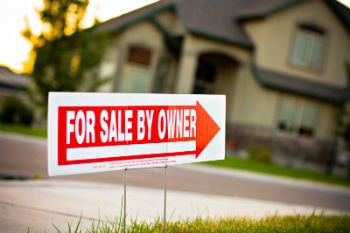 It’s only natural, you are going to sell your proeprty and you wonder about selling your home on your own, without a Realtor. You think, “It’ll be easy and besides I can save a lot of money and it can’t be that hard.” It’s a reasonable assumption and the truth is there is no one size fits all answer. Basically it boils down to the following: do you have the time, knowledge and temperament to get it done and are you prepared to do what it takes?
It’s only natural, you are going to sell your proeprty and you wonder about selling your home on your own, without a Realtor. You think, “It’ll be easy and besides I can save a lot of money and it can’t be that hard.” It’s a reasonable assumption and the truth is there is no one size fits all answer. Basically it boils down to the following: do you have the time, knowledge and temperament to get it done and are you prepared to do what it takes?
I’m certain many of my fellow Realtors are wondering why in the world would I willingly educate homeowners on how to effectively work without us. First, many home owners simply don’t realize everything that goes into listing and selling a home properly. {I’ll go so far as to say that there are many agents who seemingly don’t really know what they should be doing, but if they’ll read on they can certainly learn.} Selling real estate is both time and labor intensive. While the average homeowner is only selling one home, they’re still going to have to invest a good deal of time if they plan on doing it well. I’m betting that after reading and thinking about everything that needs to get done most will realize their not up to the job and will contact a professional Realtor to list their home. For those dyed in the wool do it DIY’ers; I’m hoping that after reading this they’ll know what they need to do to get the job done right; which in the long run is likely to make my job a little easier in the future as not a year goes by that i don’t end up selling a few FSBO’s to buyer clients. In short it’s win-win as far as I’m concerned.
Selling your home on your own without a Realtor
Here are the things you’re going to need to consider and get done to successfully sell your home on your own without a Realtor.
Research local market conditions:
- Check the listing and selling price of all comparable properties in your area for the last six months. Review the Days on Market information.
- Review the listing prices for comparable properties presently on the market. Calculate the absorption rate; in other words how many comparable homes are actively on the market and how many sold in the past 6 months. Divide the first by the second to determine absorption rate. Six months of inventory is considered a balanced market, while less than six favors sellers and more than six favors buyers.
- Finally review the listing prices of houses that are no longer on the market and which did not sell within the past 12 months as these are very likely to come back on the market many at lower prices and you’ll want to factor these in.
Tips: I suggest you begin your research on the Internet. Follow-up by checking your county tax records either online, by phone or in person; to confirm the selling prices of all comparable homes.
Get your property ready to sell:
- It’s a rare homeowner who can fairly assess their home and truly see it the way a perspective buyer will. It can be extremely difficult as it’s your home and you’re understandably emotionally invested in it, love it and either overlook or or turn a blind eye to it’s shortcomings. Alternately you don’t really see it, as you are busy with your work, your life, your kids etc. Based on my extensive experience I can tell you it’s the rare property that doesn’t need some de-cluttering, painting, landscaping, etc so that it shows it’s best.
- Photographs, you need to bear in mind that we all tend to buy with our eyes. Photographs are how you make your first impression. Forget that you have a digital camera and accept that you probably don’t take professional quality pictures. You’re getting ready to sell your home and for most of us this is probably the single largest transaction we’re likely to make which is why high quality photographs are vitally important. Don’t skimp; two dozen photographs are the minimum you’ll need and three dozen better. the best listings also feature a YouTube video and/or a virtual tour.
- Floor Plans; while not a required, I think of these as an essential to any listing. While Sellers rarely think of them, Buyers absolutely love having them. . Being able to see how the home is laid out and knowing the exact size of rooms can save both buyers and sellers a tremendous amount of time and aggravation.
Tips: When My NC Homes lists a home; we hire a licensed appraiser to measure the property and create accurate floor plans. We also hire a professional home stager to consult with our sellers. Lastly we always use professional photographers to shoot our listings as well as create both a YouTube video and Virtual Tour for all our listings. If you’re going to try to sell your own home; these are all things you may want to consider doing getting done.
Marketing your property:
- Be prepared. You are going to receive calls from Realtors like myself (every year I sell between 2-3 homes listed For Sale By Owner to buyer clients I’m working with) who will inevitably ask if you’ll pay a commission if they bring about a successful closing. Most buyers use a Buyer Broker and most are expecting that their Broker will be compensated by the Seller (don’t worry it’s reflected in the final sales price), but you need to be prepared to tell them how much you’re willing to pay for them to handle all the necessary paperwork and to see the transaction through to a successful closing. You’ll want to let the Realtor community know that your house is for sale; consider at a minimum sending a letter and sales flyer to all real estate agents within a 30 mile radius and state clearly what you’re prepared to offer should they bring you an acceptable offer.
- How much money are you prepared to spend advertising? How do you plan to get your property out on the Internet so that Buyers who are actively looking know it is for sale? You’ll want potential buyers who begin their house shopping on the Internet to find your house. What sites will you use? Do these sites allow owners to post directly or will you have to pay a Realtor to post it for you? Which are the most effective sites? Be sure to build a website to help sell your house.
- How will you create sales flyers? Buyers expect fact sheets to take with them when they drive-by or tour a house for sale.
- Where will you place signage? In addition to your front yard, is there areas leading in to your neighborhood where signage would be appropriate?
- How will you handle calls and schedule appointments? It’s important that you answer inquiry calls and schedule appointments as quickly as possible – even the same day and sometimes within an hour or less. Do you plan on being there while the home is shown? {Note Buyers and Realtors hate it, as they can’t speak freely, but if you’re not there how do they get in?
Qualify the Buyer:
- If the buyer is buying with cash, confirm that they have the necessary resources. If the Buyer is getting a mortgage you want to know that their fully pre-approved by the lender and that the lender has run a full tri-merged credit report and has verified income, assets and employment.
- If the purchase is contingent on the buyer selling their own house, you’ll need to confirm that the buyer’s house is on the market.
- Consideration the implications and potential issues that may arise if the buyer is getting financing through FHA, the VA, or USDA.
Negotiations, Contracts and Closings:
- Are you prepared to negotiate the contract? Remember if there’s a Buyer Broker on the other side you may be at a disadvantage as they are likely to be much more familiar with these forms than you are. Here’s where it’s critical that you understand this is a business negotiation, there’s nothing personal about it and if you allow your emotions to get the better of you, you run the risk of unsuccessfully negotiating the offer.
- Do you know what the legal responsibilities of the seller are in your area?
- If there’s not a Buyer Broker on the other side, then who will write the contract? Will you need to hire an attorney? If so, what will the attorney’s fees be and who will pay them?
- What other documents or information will you need to have available once the property goes under contract?
- How will you handle home inspections and any repair requests? Does it make sense to have the house pre-inspected and if so by whom?
Tips: In addition to the sales contract, you will need to complete a Seller’s Residential Property Disclosure form and possibly a Lead Based Paint Disclosure.
By now you're likely to realize there’s actually a lot that goes into getting a property sold and closed successfully and on time. But with the information I’ve supplied you are in a good position to make an informed decision. If you decide you’re up to the task, then I wish you all the best. If you realize that you would likely benefit from having a professional Realtor on you side and your in the the Chapel Hill / Durham area, we love to hear from you. Get in touch with us online or give us a call at 919-659-5173.
Posted by Larry Tollen on
Leave A Comment